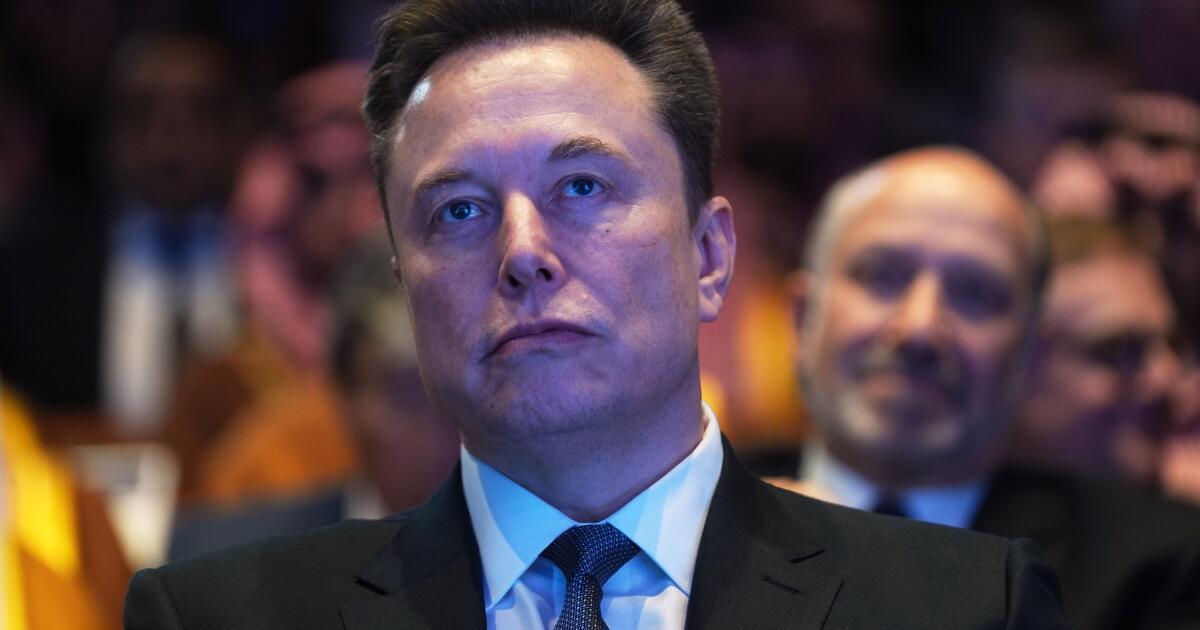Elon Musk says DOGE was only ‘somewhat successful’ and he wouldn’t do it again
Mega billionaire Elon Musk, in a friendly interview with his aide and conservative influencer Katie Miller, said his efforts leading the Department of Government Efficiency were only “somewhat successful” and he would not do it over again.
The Tesla and SpaceX chief executive, who also owns the social media platform X, still broadly defended President Trump’s controversial pop-up agency that Musk left in the spring before it shuttered officially last month. Yet Musk bemoaned how difficult it is to remake the federal government quickly, and he acknowledged how much his businesses suffered because of his DOGE work and its lack of popularity.
“We were a little bit successful. We were somewhat successful,” he told Miller, who once worked as a DOGE spokeswoman charged with selling the agency’s work to the public.
When Miller pressed Musk on whether he would do it all over again, he said: “I don’t think so. … Instead of doing DOGE, I would have, basically … worked on my companies.”
Almost wistfully, Musk added, “They wouldn’t have been burning the cars” — a reference to consumer protests against Tesla.
Still, things certainly have turned up for Musk since his departure from Trump’s administration. Tesla shareholders approved a pay package that could make Musk the world’s first trillionaire.
Musk was speaking as a guest on the “Katie Miller Podcast,” which Miller, who is married to top Trump advisor Stephen Miller, launched after leaving government employment to work for Musk in the private sector. The two sat in chairs facing each other for a conversation that lasted more than 50 minutes and spanned topics from DOGE to Musk’s thoughts on AI, social media, conspiracy theories and fashion.
Miller did not press Musk on the inner workings of DOGE and the controversial manner in which it took over federal agencies and data systems.
Musk credited the agency with saving as much as $200 billion annually in “zombie payments” that he said can be avoided with better automated systems and coding for federal payouts. But that number is dwarfed by Musk’s ambitious promises at one time that an efficiency commission could measure savings in the trillions.
Barrow writes for the Associated Press.
